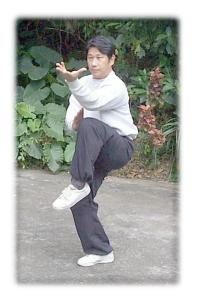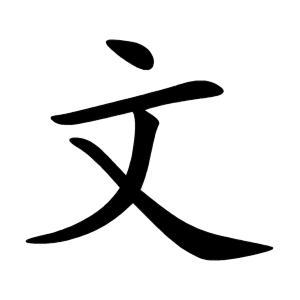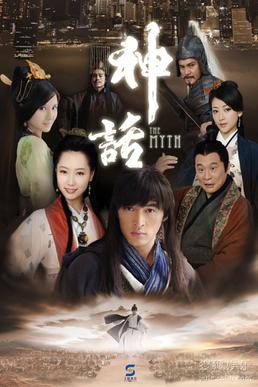Gao Yi may refer to:
- Gao Yi (canoeist)
- Gao Yi (volleyball)
- Koe Yeet, Malaysian actress, also known as Gāo Yì
Gao Yi may refer to:
Zhao Gao was a Chinese politician and calligrapher. He was an official of the Qin dynasty of China. Allegedly a eunuch, he served as a close aide to all three rulers of the Qin dynasty – Qin Shi Huang, Qin Er Shi and Ziying – and was regarded as having played an instrumental role in the downfall of the dynasty.
Gao Xiang was a military general of the state of Shu Han in the Three Kingdoms period of China.

Yuwen Tai, nickname Heita (黑獺), formally Duke Wen of Anding (安定文公), later further posthumously honored by Northern Zhou initially as Prince Wen (文王) then as Emperor Wen (文皇帝) with the temple name Taizu (太祖), was the paramount general of the Xianbei-led Chinese Western Wei dynasty, a branch successor state of the Northern Wei. In 534, Emperor Xiaowu of Northern Wei, seeking to assert power independent of the paramount general Gao Huan, fled to Yuwen's domain, and when Gao subsequently proclaimed Emperor Xiaojing of Eastern Wei emperor, a split of Northern Wei was effected, and when Yuwen subsequently poisoned Emperor Xiaowu to death around the new year 535 and declared his cousin Yuan Baoju emperor, the split was formalized, with the part under Gao's and Emperor Xiaojing's control known as Eastern Wei and the part under Yuwen's and Emperor Wen's control known as Western Wei. For the rest of his life, Yuwen endeavored to make Western Wei, then much weaker than its eastern counterpart, a strong state, and after his death, his son Yuwen Jue seized the throne from Emperor Gong of Western Wei, establishing the Northern Zhou dynasty.

Hou Jing, courtesy name Wanjing (萬景), was a Chinese military general, monarch, and politician. He was a general of Northern Wei, Eastern Wei, and Liang, and briefly, after controlling the Liang imperial regime for several years, usurped the Liang throne, establishing a state of Han. He was soon defeated by the Liang prince Xiao Yi, the prince of Xiangdong, and was killed by his own associates while in flight. He is one of the most reviled figures in ancient Chinese history, known for his extreme cruelty to enemies and civilians.
Gao Kaidao (高開道), at one point known as Li Kaidao (李開道), was an agrarian rebel leader who rose against the Sui Dynasty at the end of Emperor Yang's reign. He occupied the region centering Huairong and claimed the title of Prince of Yan, in alliance with the Eastern Turkic Khaganate. In 620, he briefly submitted to Emperor Gaozu of Tang and was bestowed the imperial surname of Li, but in 621 he rebelled against Tang and reasserted independence. In 624, his general Zhang Jinshu (張金樹) started a coup and he, realizing that the coup was about to succeed, committed suicide.

Luo Dexiu or Lo Te-Hsiu is a Taiwanese martial artist who specializes in the internal Chinese styles of Xingyiquan, Baguazhang, and Taijiquan.
Huan may refer to:

Three Kingdoms is a 2010 Chinese television series based on the events in the late Eastern Han dynasty and the Three Kingdoms period. The plot is adapted from the 14th century historical novel Romance of the Three Kingdoms and other stories about the Three Kingdoms period. Directed by Gao Xixi, the series had a budget of over 160 million RMB and took five years of pre-production work. Shooting of the series commenced in October 2008, and it was released in China in May 2010.
Wuding County is under the administration of the Chuxiong Yi Autonomous Prefecture, in the north-central part of Yunnan province, China, bordering Sichuan province to the north. Wuding's county seat is located only 5 km from the seat of Luquan Yi and Miao Autonomous County. It is a centre for titanium production.

Wen is the pinyin romanisation of the Chinese surname 文 (Wén).

The Myth is a 2010 Chinese television series based on the 2005 Hong Kong film of the same title. Jackie Chan, who starred in the original film, was credited as the producer for the series, while Stanley Tong, who directed the film, was the creative director for the series. The series was first aired on CCTV-8 in China in January 2010.

Shihtienfenia was a pareiasaurid parareptile from the Late Permian of China.

Letter 1949 is a 2008 Taiwanese drama starring Queenie Tai, Lin Yo-wei, Alien Huang, Hawick Lau. It was produced by Eastern Shine Production. The series was broadcast on free-to-air Chinese Television System (CTS) from 9 to 26 November 2008, Monday to Thursday at 20:00.

Xing Yi Quan is classified as one of the internal styles of Chinese martial arts. The name of the art translates approximately to "Form-Intention Fist", or "Shape-Will Fist".
Melody of Youth is a Chinese drama starring Leo Ku, Yang Yang, Jiang Mengjie, Kim Hee Chul of Super Junior and Zhou Mi of Super Junior-M.
Aluo is a Loloish language spoken by the Yi people of China. It is also known by its Nasu name Laka.
Annotations to Records of the Three Kingdoms by Pei Songzhi (372-451) is an annotation completed in the 5th century of the 3rd century historical text Records of the Three Kingdoms, compiled by Chen Shou. After leaving his native land, Pei Songzhi became the Gentleman of Texts under the Liu Song Dynasty, and was given the assignment of editing the book, which was completed in 429. This became the official history of the Three Kingdoms period, under the title Sanguozhi zhu. He went about providing detailed explanations to some of the geography and other elements mentioned in the original. More importantly, he made corrections to the work, in consultation with records he collected of the period. In regard to historical events and figures, as well as Chen Shou's opinions, he added his own commentary. From his broad research, he was able to create a history which was relatively complete, without many of the loose ends of the original. Some of the added material was colourful and of questionable authenticity, possibly fictional. All the additional material made the book close to twice the length of the original. Pei Songzhi scrupulously cited his sources, and always introduced his opinion as such.

Li or Lee is a common Chinese-language surname, it is the 4th name listed in the famous Hundred Family Surnames. Li is one of the most common surnames in Asia, shared by 92.76 million people in China, and more than 100 million in Asia. It is the second-most common surname in China as of 2018, the second-most common surname in Hong Kong, and the 5th most common surname in Taiwan, where it is usually romanized as "Lee". The surname is pronounced as in Cantonese, Lí (poj) in Taiwanese Hokkien, but is often spelled as "Lee" in Hong Kong, Macau, Taiwan and many overseas Chinese communities. In Macau, it is also spelled as "Lei". In Indonesia it is commonly spelled as "Lie". The common Korean surname, "Lee", and the Vietnamese surname, "Lý", are both derived from Li and written with the same Chinese character (李). The character also means "plum" or "plum tree".

Miss Rose is 2012 Taiwanese romantic comedy television series starring Megan Lai, Roy Chiu as the main leads, with Paul Hsu, Tia Lee, Chunya Chao and Puff Guo in supporting roles. The original title literally translates as "Miss Screws to get married" which is in reference to Megan Lai's character name which pronunciation sounds the same as "screw" in Mandarin and Roy Chiu's character "Gao Cheng Kuan" referring his workers as "screws", mentioned in episode 1. Filming began on June 9, 2012 and finished on December 6, 2012. First episode began airing on July 22, 2012 and finished on December 30, 2012 with 23 episodes total. The drama was filmed while it aired.
Yeet may refer to: